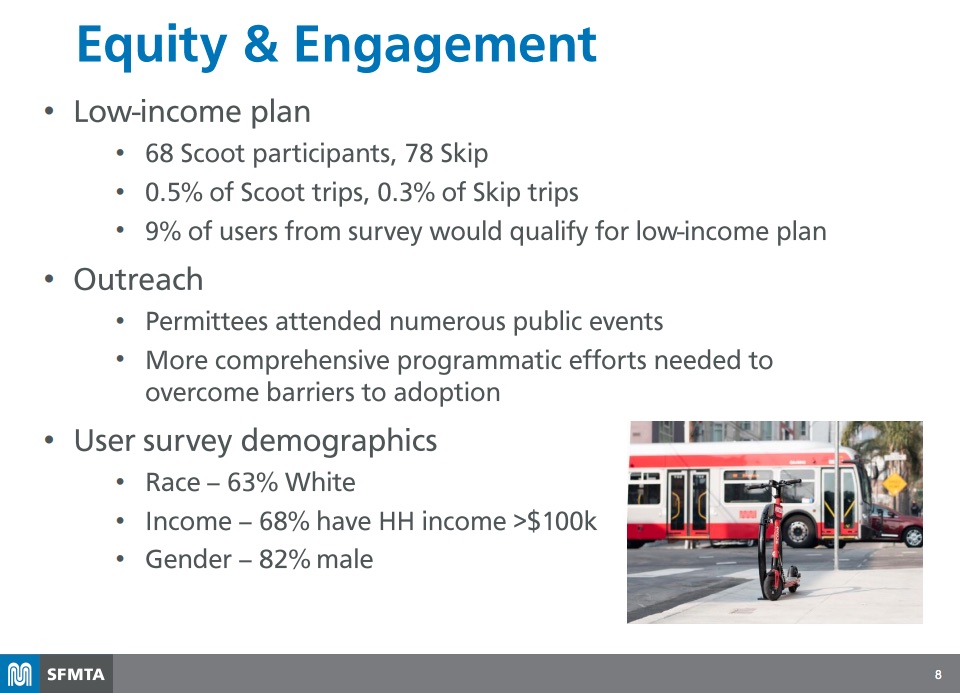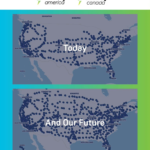Most or all the automakers are exploring self-driving car technology, and have plans to launch Transportation-As-A-Service services. Under such a service, we would not own cars any longer, but instead use a smart phone app to request a self-driving car to bring itself to us. It would be like Uber or Lyft or old-school taxi’s, but without the driver.
Such a plan would reduce land usage because we wouldn’t have to park our car somewhere, and thereby tie up some land for storing our car while its not in use. Estimates are that current model of individual car ownership means that in every city there are 7-8 parking spots existing for each car. What’s more interesting is that such cars are more likely to be electric cars.
There are huge possible benefits, but there is one big issue we should all be concerned over.
Will car sharing services only focus on well-to-do communities and thereby ignore the poor communities?
These car sharing services are businesses beholden to shareholders. They do not necessarily have a duty to serve all citizens in a city, but instead they are required to make profit for the shareholders. Therefore a car sharing service could easily choose to disallow their cars to be used in such areas.
By contrast publicly owned mass transit systems are beholden to the city. They are required by the local government to serve all citizens. Such services do operate in both poor and rich areas of town.
We can even interpret the possibility as a racist decision by car sharing services. These companies might say they’re avoiding vandalism to the vehicles, or that folks in the poor area cannot afford their service. But, these poor people also tend to be under-dog minorities with different skin color.
This isn’t just a theory – we can see this pattern already emerging in the businesses offering shared mobility services. According to an August 16 article in the LA Times![]() , Scoot and Uber and similar companies are implementing a sort of redlining where services are limited in poor areas.
, Scoot and Uber and similar companies are implementing a sort of redlining where services are limited in poor areas.
The LA Times article notes that Scoot Networks – a dockless scooter rental company operating in San Francisco – had drawn a red line around the Tenderloin District and parts of Chinatown in San Francisco, prohibiting their riders from dropping off scooters in those areas. As a result of that policy, potential riders in those areas would have a harder time finding a scooter to ride.
The Tenderloin has a large homeless population, and Chinatown is full of Chinese. Scoot replied to the LA Times saying business owners in those areas requested the red lines.
The phrase “red line” is used here because Scoot drew a red box on the map. But there is a history to this phrase – in the USA “redlining” was used for decades to control the ethnic segments who could get mortgages in each neighborhood. Old school redlining practices played a large hand in segregating Americans by race in previous decades.
San Francisco’s transit agency, SFMTA, published a document![]() in October 2018 outlining expectations of these companies. As good liberal Californians, the document required that each company engage with the community and ensure the service worked well for everyone. Specifically, one of the guiding principles is:
in October 2018 outlining expectations of these companies. As good liberal Californians, the document required that each company engage with the community and ensure the service worked well for everyone. Specifically, one of the guiding principles is:
Equitable Access–Emerging Mobility Services and Technologies must promote equitable access to services. All people, regardless of age, race, color, gender, sexual orientation and identity, national origin, religion, or any other protected category, should benefit from Emerging Mobility Services and Technologies, and groups who have historically lacked access to mobility benefits must be prioritized and should benefit most.
SFMTA
But.. by April 2019 a survey by SFMTA showed this:

Very few low income users of the service, and instead the majority of users are well paid white guys.
In another study reported on by The Verge![]() , it was found that Uber seemingly practices racial and gender discrimination. Riders with names that sound African American often had longer wait times or were more likely to have their ride request canceled. Female riders were often taken on more expensive circuitous routes.
, it was found that Uber seemingly practices racial and gender discrimination. Riders with names that sound African American often had longer wait times or were more likely to have their ride request canceled. Female riders were often taken on more expensive circuitous routes.
A blog post by The Ride Share Guy![]() claims Uber had bonus’s for certain zones in Los Angeles that just so happened to coincide with racial demographics. As a result, Uber drivers in Los Angeles tend to serve predominantly white areas.
claims Uber had bonus’s for certain zones in Los Angeles that just so happened to coincide with racial demographics. As a result, Uber drivers in Los Angeles tend to serve predominantly white areas.
Similarly, in a 2017 trial between Uber and Waymo over theft of trade secrets, an Uber employee testified![]() about discriminatory practices. In that case Uber would identify areas with higher crime statistics and refuse to service those areas, to lower operating costs.
about discriminatory practices. In that case Uber would identify areas with higher crime statistics and refuse to service those areas, to lower operating costs.
Finally the requirement to use a smart phone to access these services creates a cyber-divide between the well-to-do and those who cannot afford a smart phone. Even if a scooter or car sharing service offered rates affordable for homeless people, if they cannot afford a smart phone they cannot access the service.
Services like this could possibly democratize access to transportation. But what if they instead act to marginalize those who are already marginalized? This is a new form of the Digital Divide problem which marginalizes those who lack computer skills or lacks computers.
- Is there enough Grid Capacity for Hydrogen Fuel Cell or Battery Electric cars? - April 23, 2023
- Is Tesla finagling to grab federal NEVI dollars for Supercharger network? - November 15, 2022
- Tesla announces the North American Charging Standard charging connector - November 11, 2022
- Lightning Motorcycles adopts Silicon battery, 5 minute charge time gives 135 miles range - November 9, 2022
- Tesla Autopilot under US Dept of Transportation scrutiny - June 13, 2022
- Spectacular CNG bus fire misrepresented as EV bus fire - April 21, 2022
- Moldova, Ukraine, Georgia, Russia, and the European Energy Crisis - December 21, 2021
- Li-Bridge leading the USA across lithium battery chasm - October 29, 2021
- USA increasing domestic lithium battery research and manufacturing - October 28, 2021
- Electrify America building USA/Canada-wide EV charging network - October 27, 2021













